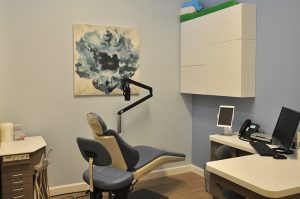How to Handle Orthodontic Emergencies With Dr. Kurth
Orthodontic emergencies can occur at any time during your treatment, whether it’s a broken bracket, poking wire, or discomfort that’s affecting your daily routine. Recognizing the need for emergency orthodontic care is crucial in addressing these concerns promptly. While most orthodontic issues can be resolved with a quick visit to your orthodontist, knowing how to handle common emergencies can help alleviate discomfort and prevent delays in your treatment. At Jacklyn Kurth Orthodontics, we’re committed to ensuring that your orthodontic treatment is as smooth and comfortable as possible. In this guide, we’ll go over the most common orthodontic emergencies, how to handle them at home, and when it’s important to contact us for immediate care.
If you experience an orthodontic emergency, don’t hesitate to call (650) 525-9440 for our Foster City office or (650) 592-4850 for our Belmont office.
What Is an Orthodontic Emergency?
An orthodontic emergency is a situation that requires immediate attention from an orthodontist to prevent further complications and ensure the continuation of your orthodontic treatment. These emergencies can arise from various factors, such as accidents, injuries, or sudden changes in the mouth. They often result in severe pain or discomfort and, if left untreated, can lead to prolonged treatment times and additional oral health issues. Recognizing an orthodontic emergency and seeking prompt care is crucial to maintaining the effectiveness of your orthodontic treatment and overall oral health.
Causes of Orthodontic Emergencies
Orthodontic emergencies can stem from a variety of sources, each potentially disrupting your treatment and causing discomfort. Common causes include:
- Accidents or Injuries: Trauma to the mouth or face from falls, sports, or other accidents can damage orthodontic appliances.
- Sudden Changes in the Mouth: Issues like a loose bracket or wire can occur unexpectedly, requiring immediate attention.
- Poor Dental Hygiene: Neglecting proper brushing and flossing can lead to tooth decay and gum disease, which may complicate your orthodontic treatment.
- Wearing Braces: Braces that are not properly fitted or maintained can cause discomfort and lead to emergencies.
- Eating Hard or Sticky Foods: Foods like hard candy, nuts, or sticky sweets can damage braces and other orthodontic appliances.
- Sports and Activities: Participating in contact sports or activities without a mouthguard increases the risk of injuries to the mouth and face.
Understanding these causes can help you take preventive measures to avoid orthodontic emergencies and ensure a smoother treatment process.
Common Orthodontic Emergencies and How to Handle Them
1. Loose or Broken Bracket
A loose or broken bracket can be uncomfortable and may affect your orthodontic treatment. If you experience this issue, don’t panic. You can temporarily reattach the bracket with orthodontic wax or gently use tweezers to reposition it if it’s completely detached. If it’s still attached to the wire but moving, contact us to schedule a visit as soon as possible to ensure proper treatment.
How to Handle:
- If the bracket is still attached to the wire: Place orthodontic wax over the bracket to prevent irritation to your mouth.
- If the bracket has come off completely: Keep it in a safe place and contact our office to reattach it.
- When to Call: If the bracket is causing pain or if it’s difficult to manage, call us for an appointment.
2. Poking Wire and Orthodontic Wax
A wire that is poking the inside of your cheek can cause significant discomfort. This issue can arise if a wire becomes loose or is not properly adjusted. Until you can get to the office, you can relieve the discomfort with orthodontic wax or by using a clean pair of tweezers to gently push the wire away from the affected area.
Another soothing technique to consider is a gum massage. Gently rubbing the gums can provide significant relief, much like a shoulder or foot massage.
How to Handle:
- Use orthodontic wax: Roll a small piece of wax and place it over the end of the wire that’s poking into your cheek.
- Reposition the wire: If comfortable, use a cotton swab or the eraser end of a pencil to gently push the wire back into place.
- When to Call: If the wire continues to irritate or you cannot reposition it yourself, call us for an appointment.
3. Discomfort or Pain from Braces
While some discomfort is normal after adjustments or the installation of braces, it can sometimes be more intense than usual. If the pain lasts longer than a few days or is severe, there are a few things you can do to relieve the pain at home, such as using over-the-counter pain medication or applying a cold compress. Additionally, consuming softer foods like soups and smoothies can help alleviate discomfort caused by braces.
How to Handle:
- Pain relief: Take over-the-counter pain medication, such as ibuprofen, to manage discomfort (as directed by your orthodontist).
- Cold compress: Apply a cold compress to your jaw to reduce swelling and alleviate pain.
- When to Call: If the pain persists beyond a few days or is unusually severe, contact our office to schedule a visit.
4. Loose or Fallen Out Wire
A wire can come loose, either from a bracket or from its normal position, and may need to be adjusted or replaced. You may experience discomfort if the wire is moving around or causing irritation. If this happens, use orthodontic wax to temporarily cover any sharp ends and contact us immediately to get it fixed, as it may require immediate medical attention.
How to Handle:
- Cover the sharp ends: Use orthodontic wax to cover the end of the wire to prevent it from poking or irritating your mouth.
- Reposition the wire: If the wire is just slightly loose, you can gently reposition it with a pair of tweezers.
- When to Call: If the wire is severely out of place or causing significant discomfort, call us right away for an appointment.
5. Lost Spacer
Spacers are small devices placed between teeth to create space for braces or other appliances. If you lose a spacer, it can affect the progression of your treatment. If you notice that a spacer is missing, call our office to contact an orthodontist immediately to replace it.
How to Handle:
- Don’t worry: In most cases, missing a spacer won’t cause a major issue, but it’s important to replace it promptly.
- When to Call: Contact our office immediately to schedule a replacement.
6. Cutting Your Lip or Cheek
If you’re experiencing cuts or sores in your lips or cheeks from the braces, it’s important to keep the area clean to prevent infection. You can also apply orthodontic wax to the braces to prevent irritation while you wait for your next appointment. If the situation worsens, consider seeking help from an emergency dentist who can provide appropriate treatment options.
How to Handle:
- Use orthodontic wax: Place wax over any brackets or wires that are irritating the inside of your mouth.
- Keep the area clean: Rinse your mouth with warm saltwater to prevent infection.
- When to Call: If the irritation or sores don’t improve or become infected, contact us for advice or an appointment.
Preventing Orthodontic Emergencies
While not all orthodontic emergencies can be prevented, taking proactive steps can significantly reduce the risk. Here are some tips to help you avoid common issues:
- Practice Good Oral Hygiene: Brush and floss regularly to prevent tooth decay and gum disease, which can complicate your orthodontic treatment.
- Avoid Hard or Sticky Foods: Steer clear of foods that can damage your orthodontic appliances, such as hard candy, nuts, and sticky sweets.
- Wear a Mouthguard: If you participate in sports or activities that pose a risk to your mouth, always wear a mouthguard to protect your teeth and braces.
- Schedule Regular Appointments: Regular check-ups with your orthodontist ensure that your appliances are properly fitted and maintained.
- Avoid Chewing on Hard Objects: Refrain from chewing on ice, pens, or other hard objects that can damage your braces.
- Use Orthodontic Wax: Apply orthodontic wax to cover any sharp edges or points on your appliances that may cause discomfort or irritation.
By following these guidelines, you can minimize the likelihood of experiencing an orthodontic emergency and help ensure that your orthodontic treatment progresses smoothly and effectively.
When to Seek Immediate Care
While many orthodontic issues can be managed at home temporarily, there are situations where immediate professional care is required. If you experience any of the following, it’s important to contact our office immediately:
- Severe pain that doesn’t improve with over-the-counter pain relief
- A broken appliance that cannot be fixed with wax
- A major emergency, such as a severe injury to your mouth or jaw
In cases of severe trauma, bleeding, or extreme pain, it is crucial to seek help at the emergency room for immediate medical attention.
Our team is always ready to assist with any orthodontic emergencies. Don’t hesitate to contact us for help!
Types of Orthodontic Treatment at Jacklyn Kurth Orthodontics
At Jacklyn Kurth Orthodontics, we offer a variety of orthodontic treatments tailored to meet your individual needs and goals. Whether you’re looking for traditional braces or more discreet options like Invisalign, we have solutions that work for you.
- Traditional Metal Braces: The most common and effective solution for a wide range of dental issues, traditional braces provide excellent results for both children and adults.
- Invisalign Clear Aligners: For those seeking a nearly invisible treatment, Invisalign clear aligners are a comfortable and removable option for both teens and adults.
- Lingual Braces: Hidden behind your teeth, lingual braces provide a discreet option for those who want to correct their alignment without visible braces.
Dr. Kurth will work with you to determine the best treatment plan based on your needs, lifestyle, and preferences. Call our Foster City office at (650) 525-9440 or our Belmont office at (650) 592-4850 to book your appointment.
Why Choose Dr. Jacklyn Kurth for Your Orthodontic Care?
Choosing the right orthodontist is key to ensuring a smooth, successful treatment experience. At Jacklyn Kurth Orthodontics, we offer expert care, focusing on your comfort and overall well-being. With offices in Foster City and Belmont, Dr. Kurth and her team are committed to providing high-quality care tailored to your specific needs. From your first consultation to the completion of your treatment, you’ll receive personalized attention every step of the way. Whether you’re seeking traditional braces, clear aligners, or lingual braces, we’re here to help you achieve a healthy, beautiful smile.
Frequently Asked Questions
If you experience a broken bracket or loose wire, use orthodontic wax to cover any sharp edges and call our office to schedule a repair. If the issue is causing discomfort, contact us immediately for guidance on how to manage it until your visit.
Discomfort from braces is common, especially after adjustments. You can relieve the pain by taking over-the-counter pain relievers like ibuprofen, applying a cold compress, or using orthodontic wax on any areas causing irritation.
Seek immediate help if you experience severe pain that doesn’t subside with pain relief, or if you have a major injury to your mouth or jaw that affects your braces or treatment. For any of these issues, contact our office right away for assistance.
Ready to Get the Care You Need?
If you’re experiencing an orthodontic emergency or need advice on how to handle a situation, don’t hesitate to contact Dr. Jacklyn Kurth’s office. We’re here to help you every step of the way! Call our Foster City office at (650) 525-9440 or our Belmont office at (650) 592-4850 to book your appointment. Let us take care of your orthodontic needs—quickly and professionally.

